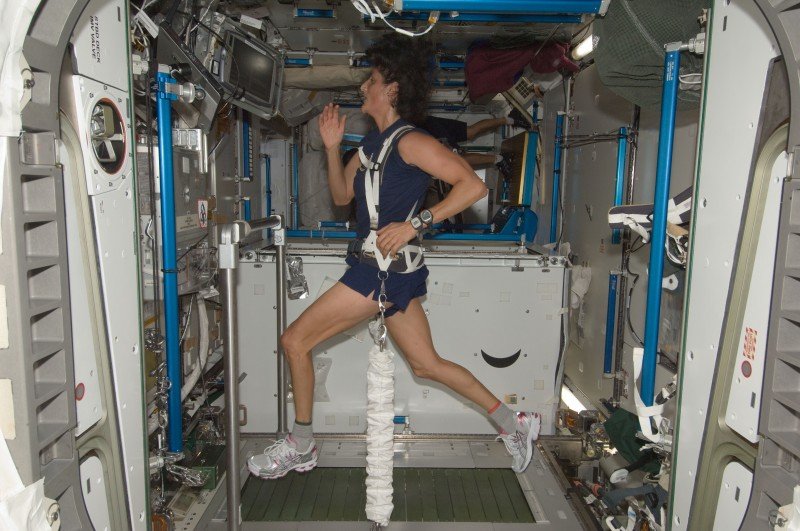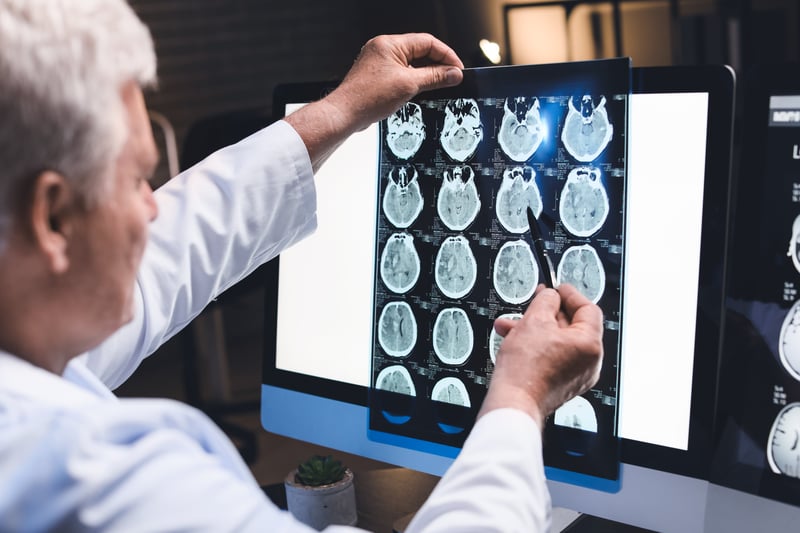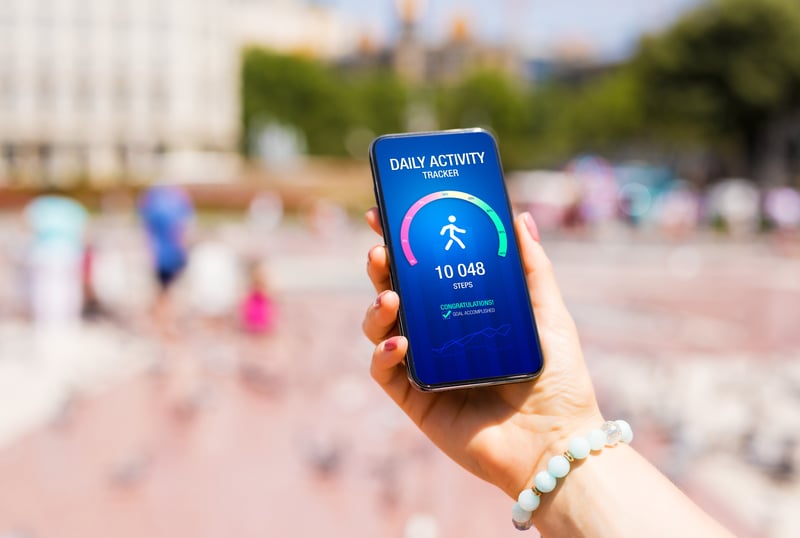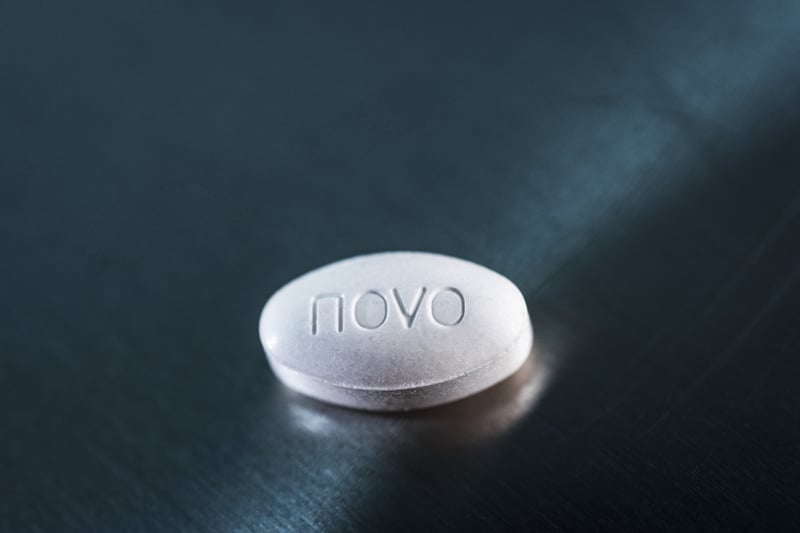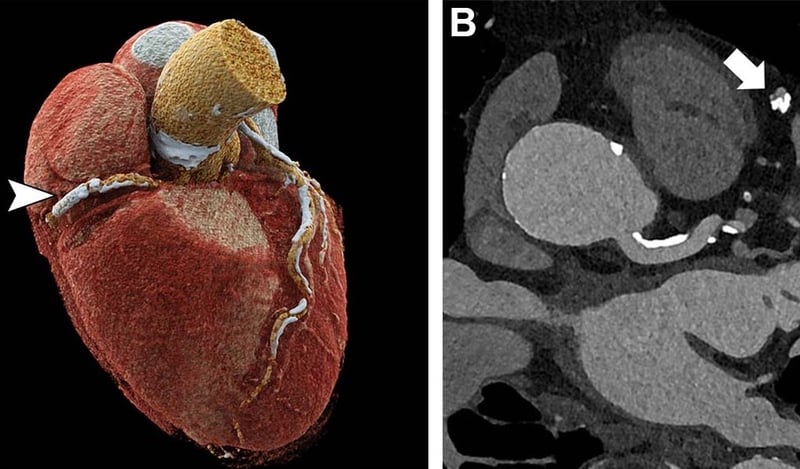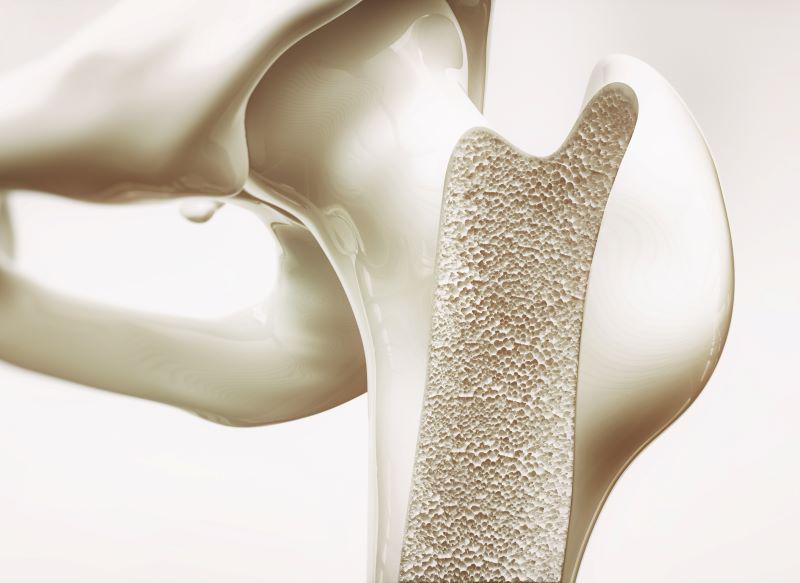Manténgase sano!
Resultados de su búsqueda "Heart / Stroke-Related: Coronary-Artery Disease".
Resultados de noticias de salud - 199
Mammograms can be used to screen for more than just breast cancer, researchers say.
The X-ray breast scans also can be used to assess calcium deposits in arteries, which is an indicator of heart health, researchers are scheduled to report Monday at a meeting of the American College of Cardiology in Chicago.
Using artificial intelligence (AI), researchers were able to analyze calcium...
- HealthDay Reporter
- Dennis Thompson
- |
- March 25, 2025
- |
- Página completa
Even a mild infection with COVID-19 can promote clogged arteries, increasing the risk of heart attack in some people, a new study says.
Infection with the COVID virus is associated with rapid growth of plaque in arteries that supply blood to the heart muscle, also called coronary arteries, researcher...
- HealthDay Reporter
- Dennis Thompson
- |
- February 5, 2025
- |
- Página completa
There's a glimmer of hope for people afflicted by a rare artery-hardening disease than can lead to amputation.
An existing medication called etidronate appears to help slow the buildup of calcium in arteries that's a hallmark of the illness, which is called arterial calcification due to deficiency of CD73 (ACDC).
ACDC is incredibly rare, affecting less than 1 in every 1 million peop...
- HealthDay Reporter
- Ernie Mundell
- |
- April 4, 2024
- |
- Página completa
High triglycerides, widely known as an enemy of the aging heart, may not be as threatening to older adults' brains, new research suggests.
The study, of over 80,000 older adults, found those with triglycerides in the "high-normal" or moderately high range were less likely to develop dementia, versus their peers with lower triglyceride levels.
Over six years, 3% of older folks with t...
- HealthDay Reporter
- Amy Norton
- |
- October 26, 2023
- |
- Página completa
The risk of having heart disease grows as a woman ages, so women need to be familiar with their heart disease risk factors, the American Heart Association (AHA) says.
Menopause factors into this risk in several different ways, with age, estrogen, symptoms and other body changes also playing a role.
Women who reach menopause at younger ages -- before 45 -- have a significantly higher...
- HealthDay Reporter
- Cara Murez
- |
- October 20, 2023
- |
- Página completa
Fluctuating blood pressure can be a harbinger for both dementia and heart disease, a new study finds.
Ups and downs within 24 hours or even over several days or weeks were linked with impaired thinking, researchers from Australia reported.
Higher variations in systolic blood pressure, the top number, were linked with stiffening of the arteries, which is associated with heart disease...
- HealthDay Reporter
- Cara Murez
- |
- October 18, 2023
- |
- Página completa
As a consumer, you probably see "heart healthy" labels on food items all the time. But do you really know what heart health means and why it's important?
Experts from Tufts University in Boston offer some details on how your heart works and how you can safeguard your heart's health.
"It's not as if you turn 65 or 70 and everything falls apart,"said
A majority of people who have a minimally invasive heart valve replacement procedure are not getting the recommended cardiac rehab after their surgeries, researchers say.
A new study finds that just under 31% of patients who have transcatheter aortic valve replacement (TAVR) are receiving this service within 90 days of the procedure.
This could be explained by TAVR patients being ...
- HealthDay Reporter
- Cara Murez
- |
- October 10, 2023
- |
- Página completa
For sufferers of sleep apnea, continuous positive airway pressure (CPAP) machines may guard against having a second heart attack, stroke or other cardiovascular crisis, but they have to use it consistently, a new study finds.
CPAP works by keeping your airways open during sleep, but because it requires wearing a mask, many people find it uncomfortable so they don't keep it on the amount ...
- HealthDay Reporter
- Steven Reinberg
- |
- October 4, 2023
- |
- Página completa
New research shows the COVID-19 virus can directly infect coronary arteries, inflaming fatty plaque inside them, which can increase the risk of heart disease and stroke.
This may explain why some people who get COVID-19 have a greater chance of developing heart disease. It also may shed light on why those who already have heart trouble develop more heart-related complications.
"Sinc...
- HealthDay Reporter
- Cara Murez
- |
- October 2, 2023
- |
- Página completa
Extensive exercise regimens are keeping astronauts healthy and protecting their hearts during extended space missions, new research finds.
A study from scientists at UT Southwestern Medical Center in Dallas found no loss of heart mass or output, and no loss of function in the heart's ventricles, during flights that can last up to six months.
The findings could have implications...
- HealthDay Reporter
- Cara Murez
- |
- October 2, 2023
- |
- Página completa
People who abuse marijuana may be setting themselves up for heart problems down the road, Canadian researchers report.
The new study found that people with so-called cannabis use disorder may have a 60% higher risk for a heart attack, stroke or other major heart-related event, compared to those who don't abuse the drug.
"There appears to be a substantial association between cannabis...
- HealthDay Reporter
- Steven Reinberg
- |
- September 28, 2023
- |
- Página completa
Up to 2 million people in the U.S. experience rapid-fire heartbeats from time to time, and many end up in the hospital for treatment.
But an investigational nasal spray may help folks with paroxysmal supraventricular tachycardia (PSVT) safely and quickly slow their heart rate on their own.
"Currently, PSVT is treated with intravenous medication administered in the emergency room or ...
- HealthDay Reporter
- Denise Mann
- |
- September 27, 2023
- |
- Página completa
Teenage boys who have high blood pressure may find themselves on the road to serious heart problems in adulthood.
Swedish researchers found that boys who had high blood pressure at 18 were at risk for heart failure, heart attacks, strokes and death as adults. And the risk began when blood pressure crossed 120/80 mm Hg, a normal reading.
"Hopefully, the results of this ...
- HealthDay Reporter
- Steven Reinberg
- |
- September 26, 2023
- |
- Página completa
While the neurological impact of a traumatic brain injury (TBI) has long been studied, new research suggests TBIs are also hard on the heart.
The research team took a closer look at connections between the two organs, finding that nervous system dysfunction, neuro-inflammation, changes in the brain-gut connection and post-injury health issues may increase risk of both cardiovascular and ...
- HealthDay Reporter
- Cara Murez
- |
- September 22, 2023
- |
- Página completa
Cardiac rehabilitation is a key part of recovery from a heart attack, helping to prevent another, perhaps more severe one.
About 800,000 people in the United States have a heart attack every year, about one-quarter of whom have already had a heart attack, according to the U.S. Centers for Disease Control and Prevention.
But research has found that participating in cardiac rehab...
- HealthDay Reporter
- Cara Murez
- |
- September 20, 2023
- |
- Página completa
A job that's demanding but less than rewarding may take a big toll on a man's heart health, a large new study suggests.
The study, of nearly 6,500 white-collar workers, found that men who habitually felt stressed on the job had up to double the risk of developing heart disease as their peers who ...
- HealthDay Reporter
- Amy Norton
- |
- September 19, 2023
- |
- Página completa
Millions of people who suffer from sleep apnea go to bed at night with a motorized device called a CPAP machine.
Now, two new studies confirm the treatment has significant benefits not just on quality of sleep, but also for keeping people's hearts healthy.
Together, the studies may offer more reasons to endure the not-always-comfortable treatment known as continuous positive...
- HealthDay Reporter
- Cara Murez
- |
- September 11, 2023
- |
- Página completa
Obesity taxes many parts of the body, but new research suggests the heart might take the hardest hit of all.
Between 1999 and 2020, deaths from heart disease linked to obesity tripled in the United States, and some groups were more vulnerable than others.
Specifically, Black adults had some of the highest rates of obesity-related heart disease deaths, with the highest percentag...
- HealthDay Reporter
- Denise Mann
- |
- September 6, 2023
- |
- Página completa
Along with having to deal with the social stigma of having a parent who is incarcerated, young adults in that situation may be more likely to develop signs of heart trouble, a new study finds.
The health impacts of having a parent who spent time in jail have been understudied, the researchers noted.
"There was very little data on its association with cardiovascular risks,"said lead ...
- HealthDay Reporter
- Cara Murez
- |
- September 1, 2023
- |
- Página completa
Poor sleep takes a toll, and catching up on the weekends just won't fix it, researchers report.
A small new study showed that heart rate and blood pressure, important measures of cardiovascular health, worsen as the week goes on when someone sleeps only about five hours a night.
Catching up on sleep over the weekends didn't return those health measures back to normal.
"Only 65...
- HealthDay Reporter
- Cara Murez
- |
- August 11, 2023
- |
- Página completa
The heart risks posed by air pollution have grown worldwide over the past three decades, a new study claims.
The annual number of premature heart-related deaths and years of disability attributable to particulate matter (PM) air pollution increased 31% between 1990 and 2019, the researchers reported.
Men suffered more than women, experiencing a 43% increase in air pollution-related ...
- HealthDay Reporter
- Dennis Thompson
- |
- August 10, 2023
- |
- Página completa
If you're one of the millions of folks bent on racking up at least 10,000 steps a day, read on.
A new study finds that heart health starts to improve with as few as 2,300 steps a day. The research also indicates your risk of dying from any disease starts to decrease with only about 4,000 daily steps.
However, the more daily steps you get, the bigger the benefit becomes, the stu...
- HealthDay Reporter
- Denise Mann
- |
- August 9, 2023
- |
- Página completa
A large clinical trial weighing the medical merits of the obesity drug Wegovy has unearthed a significant positive side effect.
Taking the medication cut the risk of serious heart problems by 20%, drug maker Novo Nordisk announced Tuesday.
"People living with obesity have an increased risk of cardiovascular disease but, to date, there are no approved weight-management medications pr...
- HealthDay Reporter
- Robin Foster
- |
- August 8, 2023
- |
- Página completa
Fatal heart disease in the United States dropped about 4% a year between 1990 and 2019, but Americans need to quit smoking, drinking and overeating or those gains could be wiped out, according to new research.
The declining rates of fatal heart disease have stalled, according to the research from Rutgers University-New Brunswick in New Jersey.
"The overall numbers are good. We saw ...
- HealthDay Reporter
- Cara Murez
- |
- August 8, 2023
- |
- Página completa
Elderly adults who start on a statin may see an even bigger drop in their "bad" cholesterol levels than their younger counterparts do, a new study suggests.
The study, of nearly 84,000 Danish patients, found that those age 75 and up typically showed a stronger response after starting a low- to moderate-dose statin: Compared with the typical 50-year-old, their LDL cholesterol dipped by a f...
- HealthDay Reporter
- Amy Norton
- |
- August 1, 2023
- |
- Página completa
Sleep apnea may increase the risk of heart attack and stroke as erratic breathing causes oxygen levels to drop, new research shows.
"These findings will help better characterize high-risk versions of obstructive sleep apnea," said co-author Ali Azarbarzin, director of the Sle...
- HealthDay Reporter
- Steven Reinberg
- |
- July 31, 2023
- |
- Página completa
As more people are advised to shun meat, a new study from Australia adds to evidence that a vegetarian diet can help improve heart health.
A review of 20 prior investigations found that folks who followed a vegetarian diet for six months, on average, saw improvements in cholesterol, blood sugar and body weight.
The study analysis "provides support to the current knowledge that eatin...
- HealthDay Reporter
- Alan Mozes
- |
- July 26, 2023
- |
- Página completa
Heart disease is a high risk for people with HIV, but a new study finds that taking statins significantly reduces the risk of serious heart incidents.
People with HIV who took a daily statin pill lowered their risk of stroke, heart attack or surgery to open clogged arteries by 35%, a clinical trial funded by the U.S. National Institutes of Health found.
Statins have the potential t...
- HealthDay Reporter
- Cara Murez
- |
- July 25, 2023
- |
- Página completa
It doesn't matter if you exercise every day or squeeze it all into the weekend. If you do the recommended 150 minutes of moderate to vigorous physical activity a week, you'll get heart benefits, a new study finds.
Both regimens protect you from atrial fibrillation (a-fib), heart attack, heart failure and stroke, compared with inactivity, researchers reported in the July 18 issue of the <...
- HealthDay Reporter
- Steven Reinberg
- |
- July 18, 2023
- |
- Página completa
Your gut bacteria could affect your risk for the fatty deposits in heart arteries -- and future heart attacks, researchers say.
A new study finds a link between the levels of certain microbes in the gut and these coronary atherosclerotic plaques.
Led by researchers from Uppsala and Lund Universities in Sweden, the study analyzed gut bacteria and cardiac images from nearly 9,000 Swed...
- HealthDay Reporter
- Cara Murez
- |
- July 14, 2023
- |
- Página completa
Certain foods are key to reducing heart disease risk, so it's important to eat them to stay healthy.
A globally focused study looked at foods commonly considered to be healthy to better understand this.
Consuming fruits, vegetables, legumes, nuts, fish and whole-fat dairy products is key to lowering the risk of cardiovascular disease (CVD), including heart attacks and strokes. The s...
- HealthDay Reporter
- Cara Murez
- |
- July 10, 2023
- |
- Página completa
Pregnancy triggers many changes to the body, but there's one that may surprise many women.
A hidden change is that the heart has to pump, on average, nearly 50% more blood by the end of pregnancy than it did before pregnancy, and then it has to quickly go back to "normal operations"after delivery. While most pregnant women's hearts tolerate these changes well, pregnancy can serve as a "st...
- HealthDay Reporter
- Jerome Federspiel, MD, PhD Asst. Prof. of Obstetrics/Gynecology, Duke University School Of Medicine
- |
- July 5, 2023
- |
- Página completa
Vitamin D supplements might lower the risk of heart attack and other cardiac ills for people over 60 -- especially if they're already taking heart meds, a new study suggests.
"Our results suggest that further exploration of the possible benefit of vitamin D on cardiovascular events, particularly in those at higher risk of having an event, might be warranted," said senior researcher
- HealthDay Reporter
- Steven Reinberg
- |
- June 29, 2023
- |
- Página completa
Could a grocery cart save lives by preventing possible strokes? It just might.
The notion stems from a new British study in which grocery cart handles were embedded with electrocardiogram (EKG) sensors.
The goal: to screen shoppers for undiagnosed cases of atrial fibrillation (a-fib), the most common heart rhythm disorder.
"Atrial fibrillation is a leading cause of stroke,"ex...
- HealthDay Reporter
- Alan Mozes
- |
- June 28, 2023
- |
- Página completa
The benefits of noninvasive imaging may soon be available to patients at high risk of coronary artery disease, according to researchers studying a newer technology.
That technology is called ultra-high-resolution coronary CT angiography.
Currently, patients have coronary CT angiography (CCTA), which is highly effective for ruling out coronary artery disease when it's used in patient...
- HealthDay Reporter
- Cara Murez
- |
- June 20, 2023
- |
- Página completa
There is an epidemic of loneliness and isolation today, and the consequences can be deadly, researchers say.
Folks who reported that they were socially isolated or felt lonely were more likely to die early from all causes including cancer, according to a sweeping review of 90 studies that included more than 2.2 million people from around the globe.
Exactly how loneliness or social i...
- HealthDay Reporter
- Denise Mann
- |
- June 19, 2023
- |
- Página completa
Testosterone replacement therapy is safe for most men with heart problems who also have been diagnosed with a low testosterone disorder, a new clinical trial has concluded.
The trial found that testosterone replacement did not raise these patients' incidence of heart attack, stroke or heart-related death in a group of men with both heart problems and hypogonadism -- a condition in which l...
- HealthDay Reporter
- Dennis Thompson
- |
- June 16, 2023
- |
- Página completa
A new study has unearthed significant racial disparities in both treatment and outcomes for peripheral artery disease (PAD).
Black patients with this condition, where plaque builds up in the arteries of the legs, were more likely to have a stroke, heart attack or amputation than white patients, according to researchers from Keck Medicine at the University of Southern California in Los An...
- HealthDay Reporter
- Cara Murez
- |
- June 16, 2023
- |
- Página completa
Many studies have suggested that light drinking can do the heart some good, and now researchers think they have found one reason why: It helps the brain relax.
It's no secret that many people pour a drink as a way to unwind and shed the stressors of the day. And research suggests that is not just a placebo effect. In the short term, alcohol has a quieting effect on the amygdala -- a brain...
- HealthDay Reporter
- Amy Norton
- |
- June 13, 2023
- |
- Página completa
A new transplant method that "reanimates" donor hearts appears safe and effective, a new clinical trial has found -- in an advance that could substantially expand the supply of donor hearts available in the United States.
The trial tested an approach that allows doctors to transplant hearts from donors who have succumbed to "circulatory death" -- meaning the heart has stopped beating. Tra...
- HealthDay Reporter
- Amy Norton
- |
- June 8, 2023
- |
- Página completa
As a huge plume of smoke from over 400 Canadian wildfires swept south and turned New York City into a landscape that resembled Mars more than Earth, heart experts warned that air pollution can damage your heart as much as it damages your lungs.
It's obvious that wildfires can affect breathing and respiratory health, but exposure to this smoke can also cause or worsen heart problems, the ...
- HealthDay Reporter
- Cara Murez
- |
- June 8, 2023
- |
- Página completa
What happens when the blood supply to your bones is somehow damaged?
The condition has a name, avascular necrosis, and it can trigger the death of bone cells.
Other common names are osteonecrosis or bone infarction. Bone is alive and requires nourishment from the blood supply to stay healthy. If the blood supply is not restored to the bone, small cracks develop and the bone can fra...
- HealthDay Reporter
- Daniel Wiznia, MD, Assistant Professor of Orthopaedics and Co-lead, Avascular Necrosis Program, Yale
- |
- May 31, 2023
- |
- Página completa
When one of the heart's valves springs a big leak, that can spell big trouble.
The good news: The condition, known as degenerative mitral regurgitation (DMR), is treatable using a minimally invasive intervention known as TEER (transcatheter edge-to-edge repair), a procedure that involves the insertion of a small clip to enable proper valve closure and blood flow.
The better news? A ...
- HealthDay Reporter
- Alan Mozes
- |
- May 24, 2023
- |
- Página completa
When it comes to predicting heart trouble down the road, the arteries may say a lot more than the genes do, according to a new study.
Researchers found that CT scans of the heart arteries were better than genetics at predicting middle-aged adults' risk of heart disease in coming years.
In fact, people's genes gave little useful information over and above low-tech methods, such as me...
- HealthDay Reporter
- Amy Norton
- |
- May 23, 2023
- |
- Página completa
It's well known that it's unhealthy to have belly fat accumulating around your abdominal organs, but there's a more insidious form of fat that could be even more hazardous to your health, a new study says.
Fat that infiltrates your muscles appears to dramatically increase your risk of death, according to findings published May 16 in the journal
Lured by promises of bigger muscles and better performance on the field, many athletes and bodybuilders turn to anabolic steroids despite their well-known side effects, including increased risk for heart disease and mood issues.
Now, two new studies show these harms may persist after athletes stop taking the synthetic hormones.
The message is clear when it comes to the illegal ...
- HealthDay Reporter
- Denise Mann
- |
- May 16, 2023
- |
- Página completa
Millions of Americans take cholesterol-lowering drugs called statins, but a new study finds Black and Hispanic adults get the drugs less often than white people do.
"This adds to the known racial and ethnic disparities already highly prevalent in heart disease,"said lead author Dr. Ambarish Pandey, an assistant pro...
- HealthDay Reporter
- Cara Murez
- |
- May 12, 2023
- |
- Página completa
There are many medications for type 2 diabetes, but one class may stand out for protecting the heart, a new study suggests.
The study, of thousands of U.S. veterans with diabetes, found that those who added drugs called GLP-1 receptor agonists to their usual regimen were somewhat less likely to suffer a first-time heart attack or stroke in coming years.
That was in comparison to vet...
- HealthDay Reporter
- Amy Norton
- |
- May 9, 2023
- |
- Página completa
While a lot of research has focused on autism in children, much less effort goes toward studying adults with autism.
Now, two new reports find this group is at substantial risk for age-related physical conditions and injuries, as well as being particularly susceptible to certain mental health issues including loneliness, social isolation and lower quality of life.
"There is accumula...
- HealthDay Reporter
- Cara Murez
- |
- May 5, 2023
- |
- Página completa










